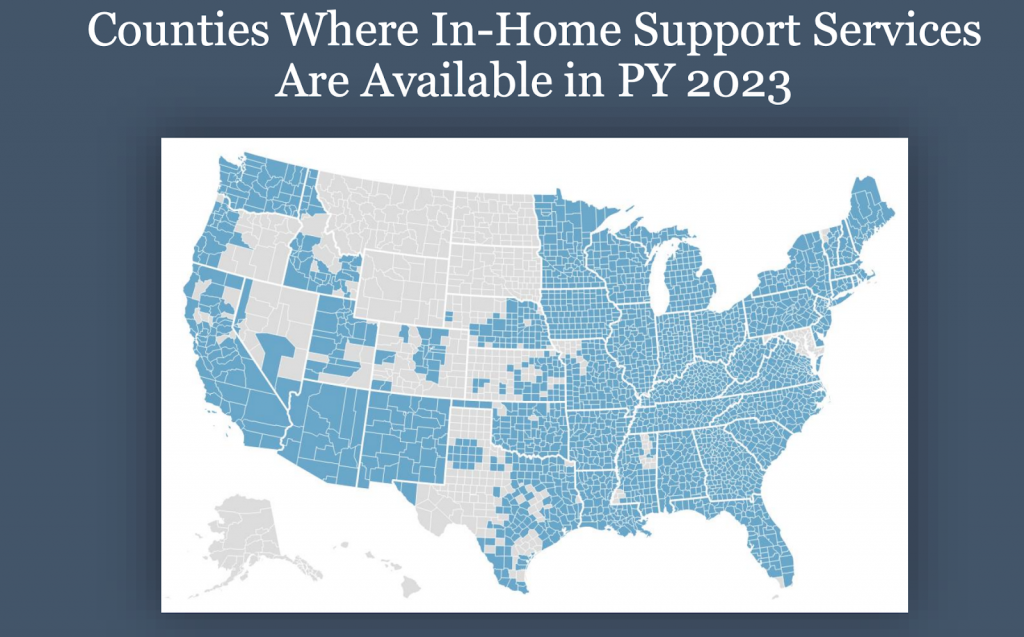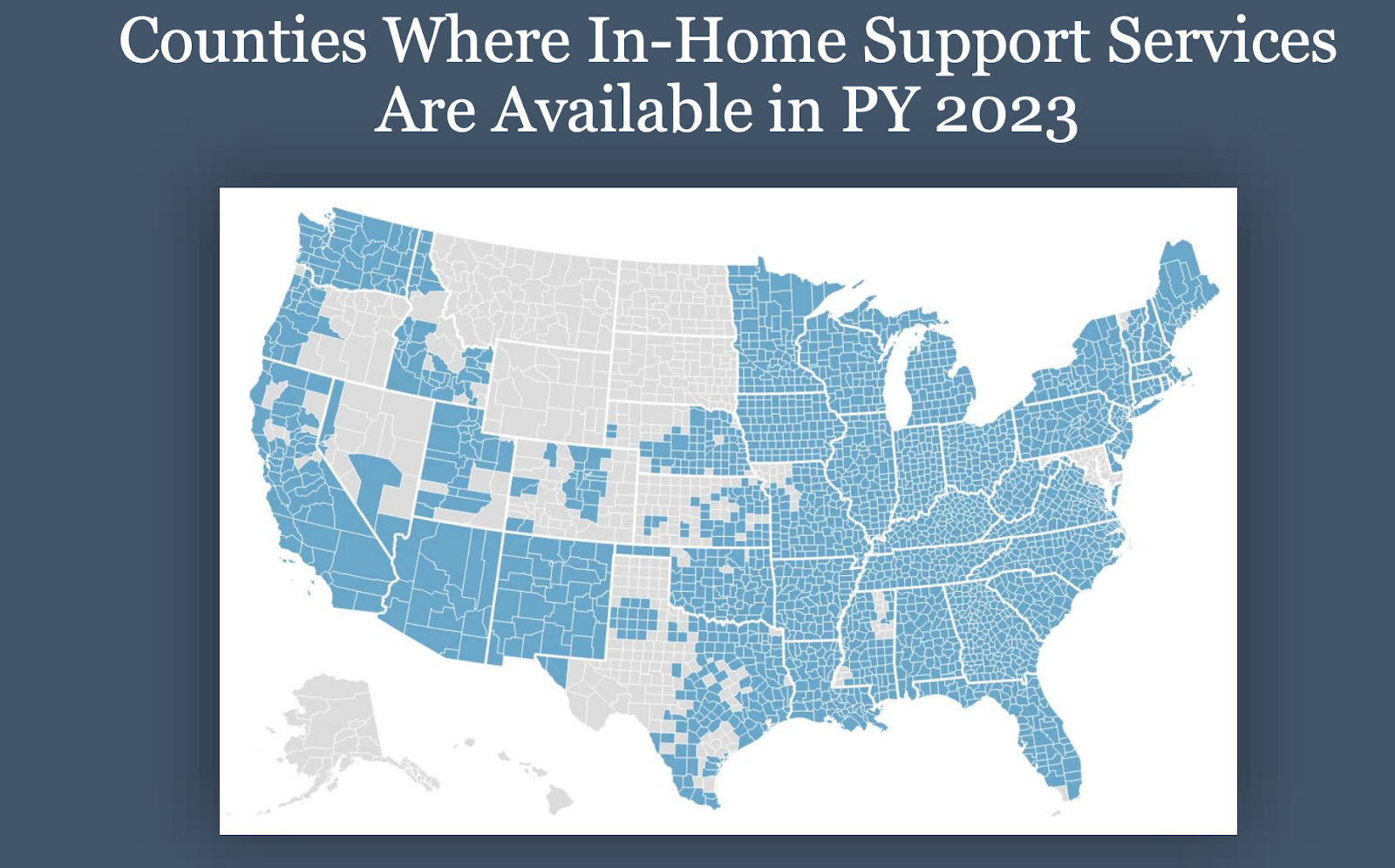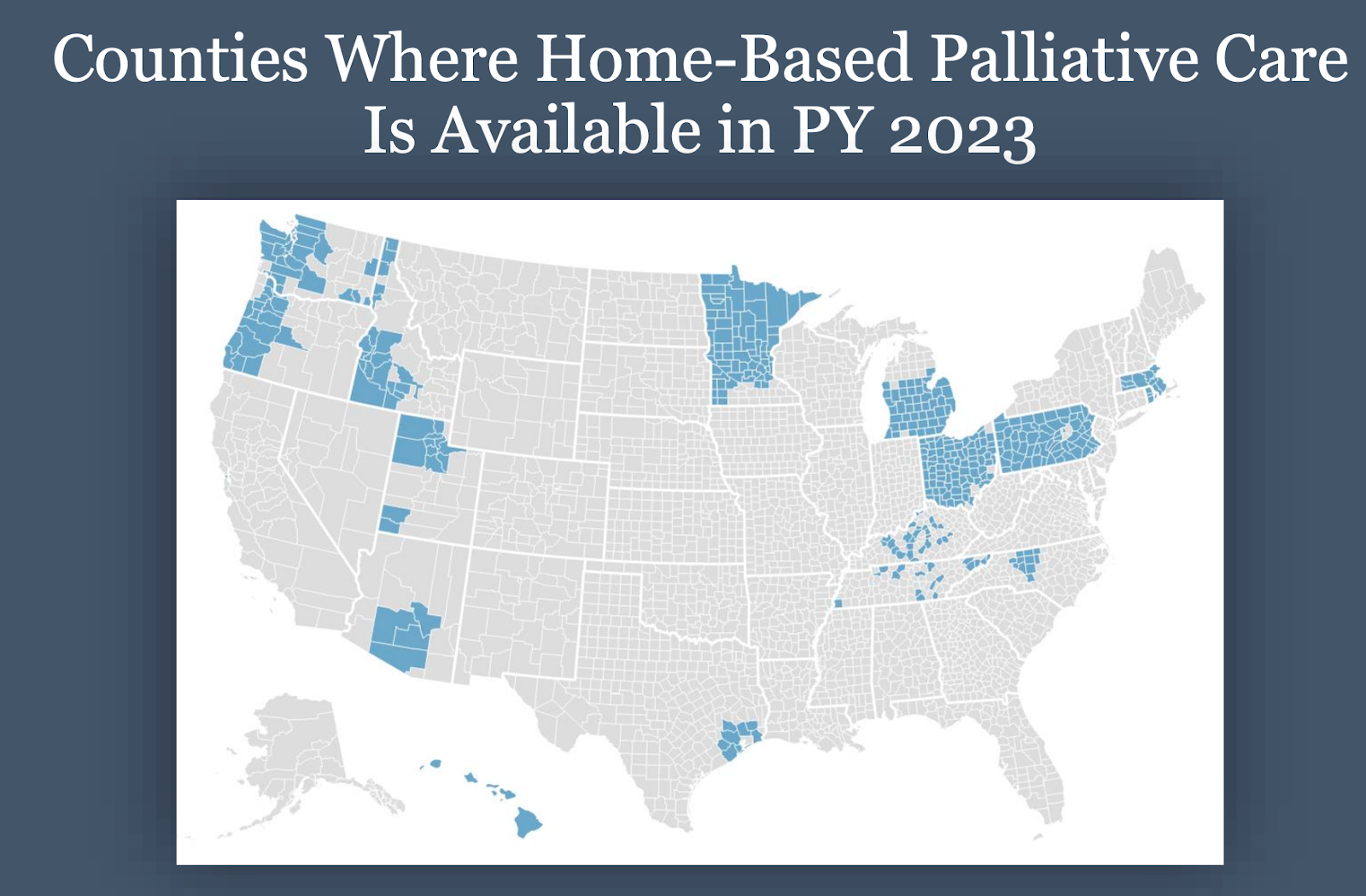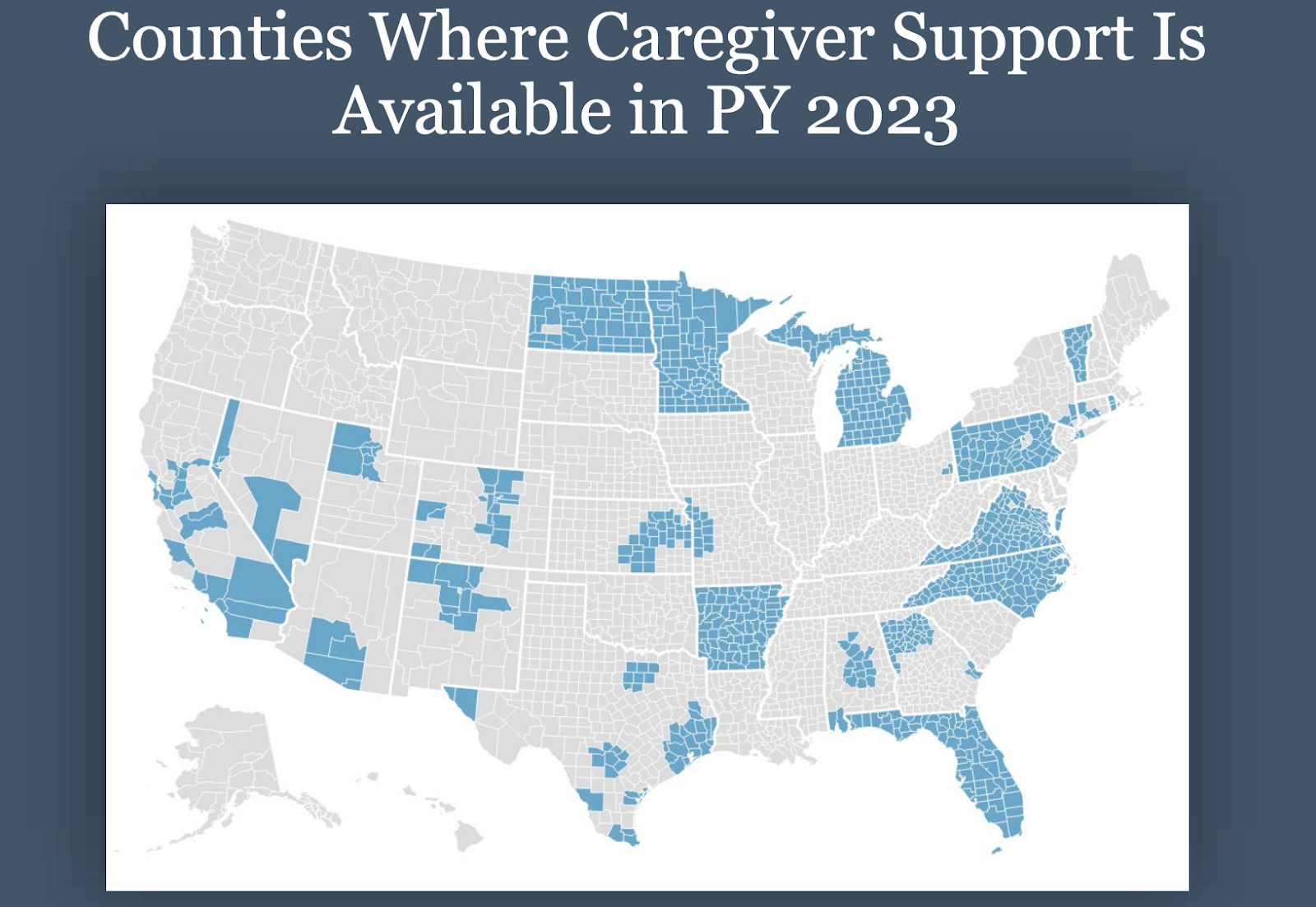
A Further Breakdown Of Home-Based Care Services In Medicare Advantage For 2023
Ahead of the annual enrollment period Medicare Advantage (MA) organizations have been offering a peek into what benefits they’re offering seniors in 2023. Notably, many will give their beneficiaries access to home-based care services.
Now, ATI Advisory is sharing exactly how many have made these services available to seniors.
The number plans offering in-home support services has grown exponentially over the years. Next year, 1,091 plans will include these services as part of their offerings, compared to 729 in 2022, 429 in 2021 and 223 in 2020.
“We have seen consistent growth in the number of MA plans offering in-home support services year over year since these benefits were first available,” Bill Winfrey, director of ATI Advisory, told Home Health Care News in an email. “This reflects MA organizations’ understanding that these benefits are valuable to members, and a maturing marketplace for the provision of these benefits. We see an overall trend toward providing more services in the home to meet members where they are.”
ATI is a D.C.-based research and advocacy organization.
The top three organizations offering the most plans with in-home support services are Cambia Health Solutions Inc., Centene Corporation and Cigna (NYSE: CI). Humana Inc. (NYSE: HUM) and SCAN Group were also included in the top ten list.
In terms of geography, these in-home support services are being offered in 43 states, Washington, D.C., and Puerto Rico.

In addition to in-home support services, more plans are offering home-based palliative care. In 2023, 157 plans will include these services as part of their offerings. In 2022, 147 plans included home-based palliative care, while 134 did in 2021 and 61 did in 2020.
“We are certainly seeing a shift to more care, and more holistic care, being provided in the home,” Tyler Overstreet Cromer, principal at ATI Advisory, told HHCN in an email. “While we see some limited growth in the number of plans offering home-based palliative care as a primarily health-related benefit, we will continue to see innovation in palliative care in the Medicare Value-Based Insurance Design demonstration this year.”
Plans in 17 states will offer home-based palliative care in at least one county in 2023.

Some of these companies include Henry Ford Health System, Kaiser Foundation Health Plan and UPMC Health System.
Cambia Health Solutions Inc., Commonwealth Care Alliance and Gold Kidney Health Plan were the top three organizations offering the most plans with home-based palliative care.
Plans are also providing more access to support for caregivers of enrollees, or respite care. Next year, 293 plans will be offering these services, compared to 160 in 2022.
These respite care benefits will be offered in 24 states and Puerto Rico, by companies like SCAN Group, Alignment Healthcare USA, Cigna and Guidewell Mutual Holding Corporation.

On the other hand, the number of plans offering adult day services took a downturn. Only 41 plans will offer these services in 2023, compared to 50 in 2022 and 127 in 2021.
Ultimately, the increase in the amount of plans offering home-based care services are proof of the necessity of these services, according to Cromer.
“Home-based care is not just a trend, but something that is here to stay, as plans, beneficiaries and their caregivers understand the value that home-based care delivers,” she said. “As more than 10,000 individuals age into Medicare each day, home care providers should position themselves to deliver services not only through private pay but through Medicare Advantage plans. As these benefits continue to grow, we anticipate that Medicare beneficiaries will start asking first if their home care can be provided through their health plan, and those home care providers who have done the work to build relationships with health plans will be well-positioned to respond to their needs.”